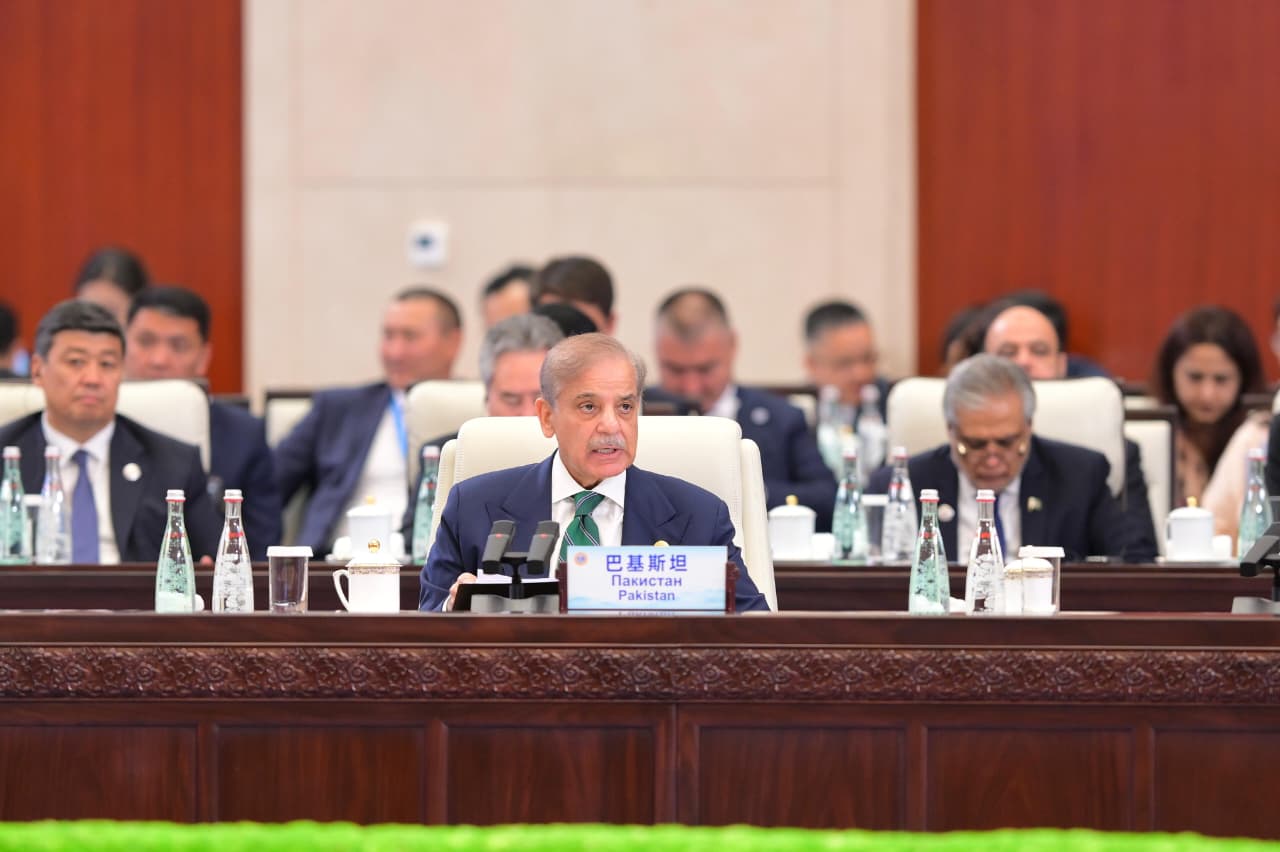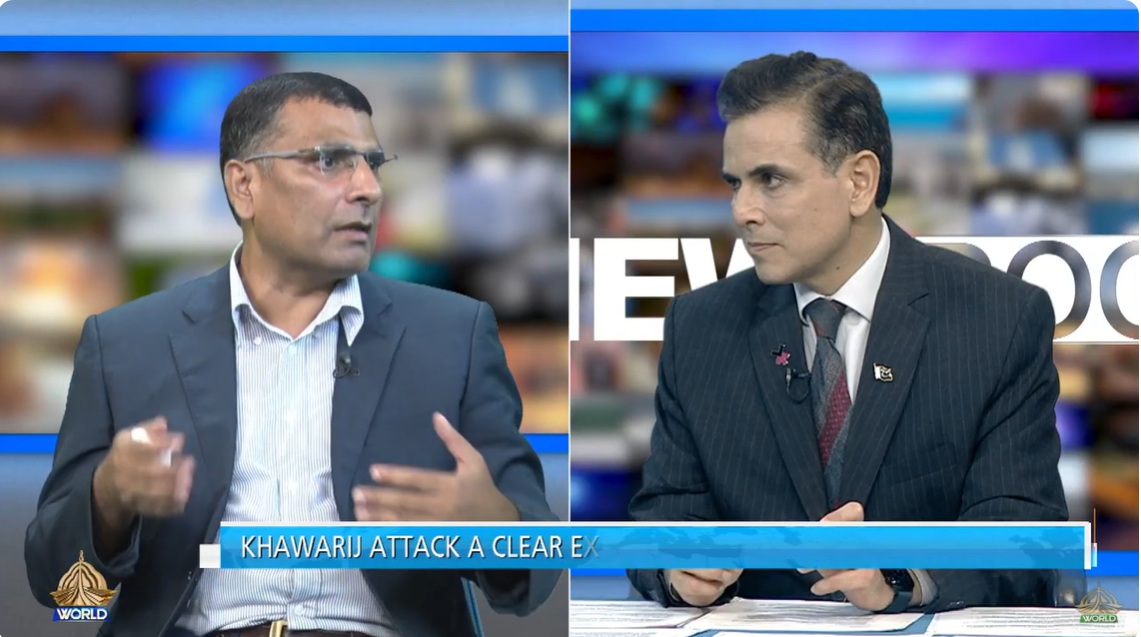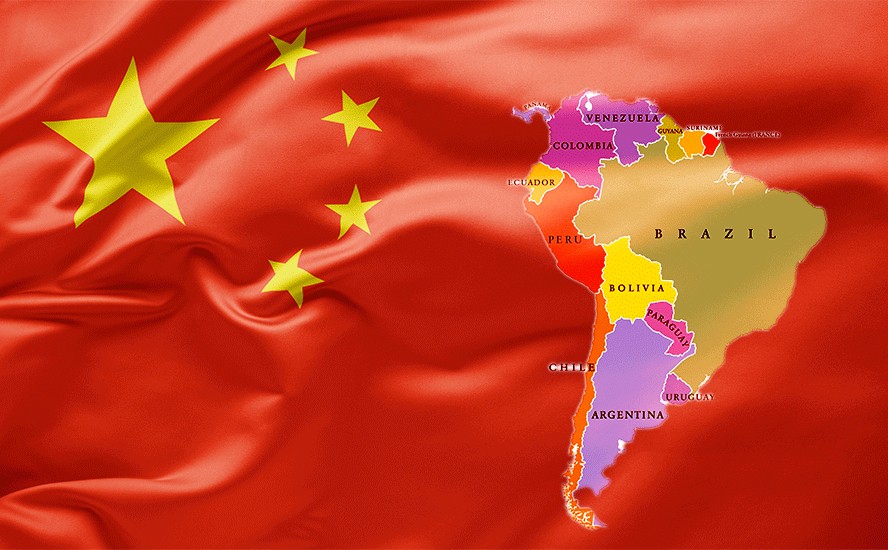Islamabad (PNP Monitoring Desk) – On the topic of recent Shanghai Cooperation Organization (SCO) declaration, Pakistan Television’s flagship program Newsroom hosted an extensive discussion on pressing national and regional issues. The talk show, moderated with a focus on analytical depth, brought together seasoned experts including Dr. Muhammad Arif (Foreign Affairs Analyst), climate commentators, and political observers.
Dr. Muhammad Arif offered a comprehensive analysis of the recent Shanghai Cooperation Organization (SCO) declaration, emphasizing its endorsement of Pakistan’s long-standing stance on terrorism. He described the development as a major diplomatic success, situating Pakistan as a “net regional stabilizer” whose sacrifices in the fight against terrorism have finally received overdue global recognition.
The wide-ranging discussion, which followed Prime Minister Shehbaz Sharif’s participation in the SCO summit, touched on Pakistan’s counter-terrorism achievements, Indian state-sponsored militancy, Afghanistan’s role in harboring groups, and the broader geopolitical dynamics that threaten regional stability. Dr. Arif’s remarks underscored both Pakistan’s resilience and the challenges that remain in ensuring peace and economic progress in South and Central Asia.
SCO Endorsement: “A Clear Victory for Pakistan”

According to Dr. Arif, the SCO’s explicit support of Pakistan’s position on terrorism carries significance far beyond diplomatic symbolism. He noted that for the first time, Pakistan’s sacrifices—measured in tens of thousands of lives lost and billions in economic damage—were acknowledged by an international bloc representing nearly half of the world’s population.
“The Prime Minister presented Pakistan’s perspective very vibrantly, very dominantly, and very prominently,” Dr. Arif observed, adding that India, which in the past had sought to disrupt such recognition, “remained silent” during this summit. He described this as evidence that Islamabad’s narrative had gained traction, while New Delhi’s efforts to brand Pakistan as a sponsor of militancy were losing credibility.
The SCO declaration’s condemnation of terrorist incidents inside Pakistan—including the Jaffer Express attack and the Khuzdar school bus bombing—was cited by Dr. Arif as proof of Islamabad’s diplomatic success. Importantly, he argued, the omission of Indian claims regarding the Pulwama attack highlighted the effectiveness of Pakistan’s backchannel diplomacy in preventing acceptance of Delhi’s narrative.
Exposing Double Standards
Turning to India’s role, Dr. Arif stressed that Pakistan faces “daily terrorism” sponsored by its eastern neighbor, often through networks operating in Afghanistan. He pointed to the arrest of serving Indian intelligence officer Kulbhushan Jadhav and other captured operatives as irrefutable proof of state-sponsored terrorism.
“When India blames Pakistan, it lacks credibility because its accusations target Kashmiri freedom fighters, not the Pakistani state,” he said. “By contrast, when Pakistan captures Indian agents, it proves official involvement. This is direct state terrorism.”
He lamented the “double standards” in international counter-terrorism discourse, where Indian actions receive less scrutiny despite evidence. According to him, global diplomats have now begun privately seeking dossiers and proof of Indian involvement, a shift that he described as “a breakthrough” in how Pakistan’s concerns are finally being heard.
Pakistan as a Regional Stabilizer
Beyond the question of narratives, Dr. Arif highlighted Pakistan’s evolving role as a stabilizer in South and Central Asia. He noted that the SCO, founded on the principles of mutual respect and dialogue, had recognized Pakistan not merely as a victim of terrorism but as a proactive contributor to regional peace.
“When peace is there, when terrorism is countered, development can start,” he said, linking Pakistan’s sacrifices directly to opportunities for economic connectivity projects such as the China-Pakistan Economic Corridor (CPEC). By projecting Pakistan as a responsible partner, Dr. Arif argued, the country had positioned itself as essential to any future architecture of regional cooperation.
Securing CPEC and Countering Militancy
Dr. Arif also addressed Pakistan’s domestic counter-terrorism measures, particularly in sensitive regions where CPEC projects are concentrated. He emphasized that Pakistan had created dedicated security divisions, launched targeted operations, and strengthened its policy framework to protect foreign workers and infrastructure.
“These are very sensitive areas for regional connectivity,” he explained. “Pakistan has taken solid steps—both as a state and as a strategy—to counter terrorist activities and ensure that CPEC and Belt and Road projects move forward.”
This, he added, had been acknowledged not just by Beijing but also by Moscow and Washington, marking a rare convergence of international recognition for Pakistan’s security efforts.
Afghanistan: “Words Are Not Enough”
Discussing Afghanistan, Dr. Arif noted that the interim Taliban administration had belatedly begun recognizing the presence of terrorist groups within its borders. He emphasized that Pakistan, China, and Afghanistan had initiated trilateral talks to press for concrete action, with Islamabad insisting that mere assurances would no longer suffice.
“Unless these groups are eliminated, development, peace, and security cannot be achieved in Afghanistan,” he warned. He highlighted that many anti-Pakistan militants, including Baloch insurgent factions, were still using Afghan territory for training and operations.
Dr. Arif urged Kabul to treat counter-terrorism as its “prime agenda” if it wished to benefit from economic initiatives like transnational railway projects and industrial cooperation. Failure to act decisively, he cautioned, would doom Afghanistan’s hopes of stability and modernization.
India’s Regional Agenda
Dr. Arif further argued that instability in Pakistan aligns with Indian strategic interests. By supporting insurgent networks, he claimed, New Delhi aims to obstruct CPEC and undermine Pakistan’s role as a trade and energy corridor linking South Asia with Central Asia and beyond.
“It is the dream of India not to have a stable Pakistan,” Dr. Arif asserted. He urged multilateral bodies such as SCO and BRICS to hold India accountable for its anti-terrorism policies, warning that unchecked Indian behavior risked destabilizing the wider region.
Recognition of Pakistan’s Sacrifices
A recurring theme in Dr. Arif’s remarks was the importance of global acknowledgment of Pakistan’s sacrifices. He noted that Washington, Beijing, and Moscow had all recently praised Islamabad’s counter-terrorism commitments, a development he described as “a turning point” in global perceptions.
“Pakistan has assured the world that we are committed to counter-terrorism. We ask for support, not blame,” he said. He emphasized that Pakistan’s consistent provision of evidence, coupled with its proactive diplomacy, had finally shifted the narrative in Islamabad’s favor.
Call for Implementation and Enforcement
While celebrating diplomatic gains, Dr. Arif stressed that the SCO must move beyond declarations to effective implementation. He observed that despite two decades of rhetoric, terrorism, extremism, and separatism continued to rise across the region.
“It talks much, but it has to deliver more than it talks,” he cautioned, calling for stronger enforcement mechanisms to ensure that commitments translate into real security outcomes.
Conclusion
Dr. Arif’s analysis painted a picture of Pakistan at a crossroads: vindicated diplomatically, but still under pressure from cross-border militancy and the need for stronger regional cooperation. His remarks underscored Islamabad’s dual identity—as both a victim of terrorism and a proactive force for stability.
By situating Pakistan within broader SCO dynamics, he argued that the world was beginning to recognize the country’s sacrifices and contributions. Yet his repeated calls for implementation, accountability, and regional cooperation suggested that the fight against terrorism remains unfinished.
“Better late than never,” Dr. Arif concluded, “but it is time for words to become action.”



